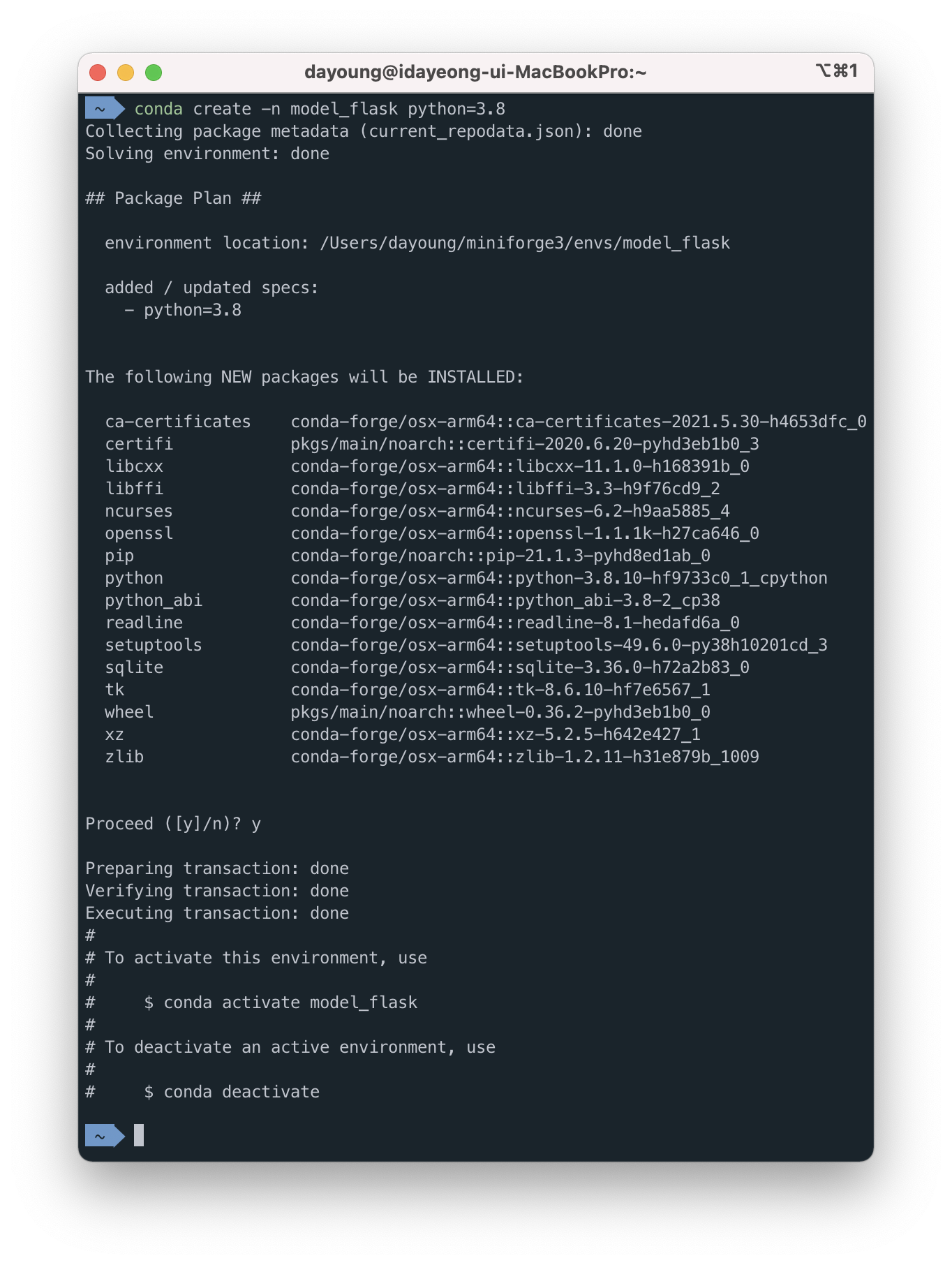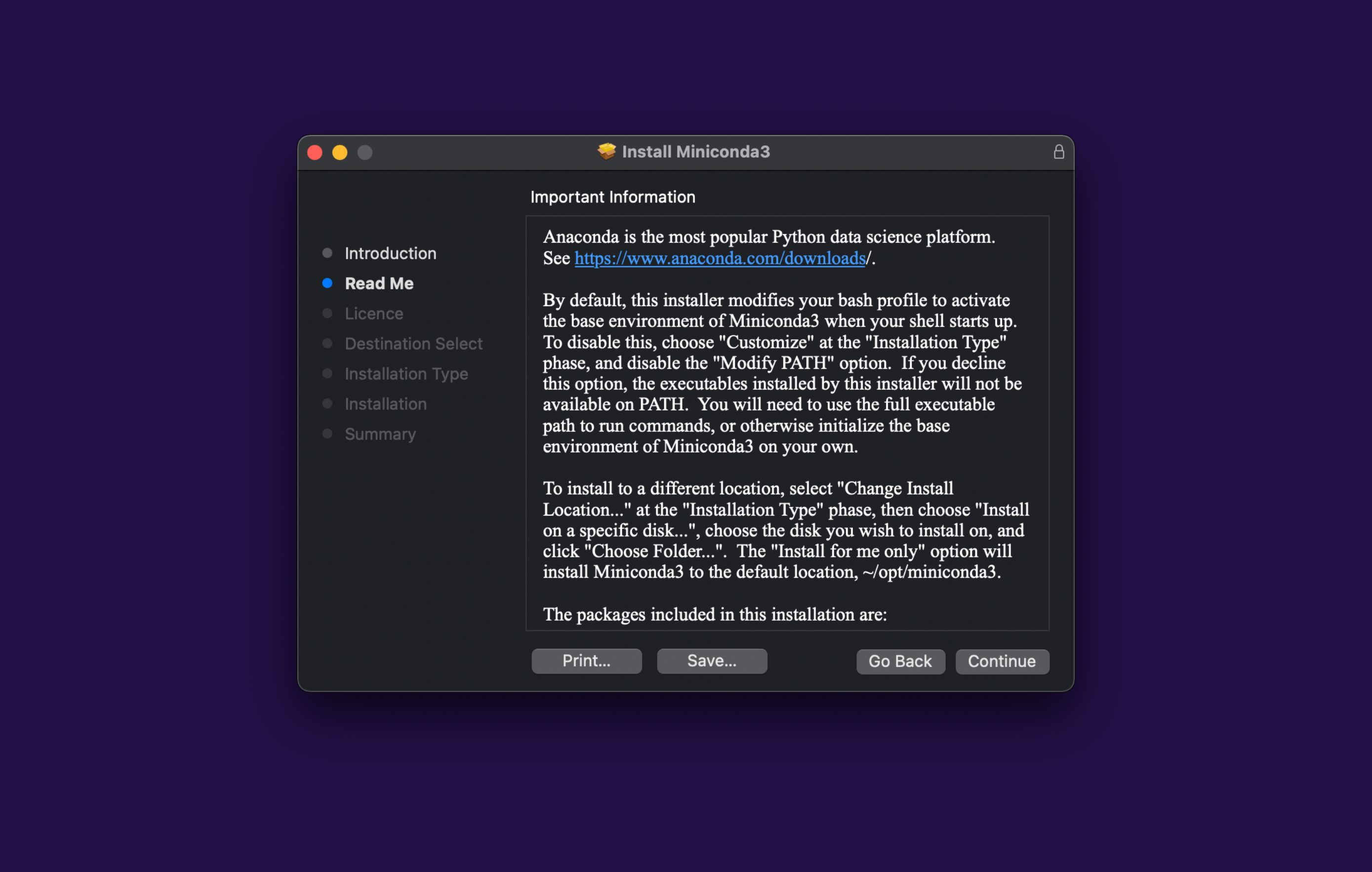

#Python mac m1 install software#
By installing Homebrew, we now have access to more package-based software to install.Īt this point you may want to make your terminal more visually appealing. Installing this is as simple as running: /bin/bash -c "$(curl -fsSL )"
#Python mac m1 install install#
Open up your new terminal (iTerm2 that is) and we will install Homebrew, our package manger. Now that we have our terminal application we can open it and install more great software! 😁 Homebrew * Note: we will be running the rest of our terminal commands in iTerm2. Downloading and installing iTerm2 is as simple as visiting their website and clicking Download.


Technically we could use the default MacOS terminal application, but I prefer iTerm for its customization options and general aesthetic. Our first tool is a terminal emulator application. Let’s make a list of them before we get into each tool:Īlright, now that we have our list let’s get started! The order here is important so feel free to follow along. To get a fully functioning Python workstation going we are going to need a few tools.
#Python mac m1 install how to#
Either way, today we are going to go over and explain how to get your favorite language setup… Python! Tools we Need Or, maybe you are like me and you like the smaller things in life and went with the fan-less MacBook Air. Maybe it was a MacBook Pro, a Mac mini, or one of the new colorful iMacs. In /Users/copelco/projects/test/.direnv/python-3.7.9/lib/python3.7/site-packages/_cffi_ you went ahead and got yourself a brand new Mac. Referenced from: /Users/copelco/projects/test/.direnv/python-3.7.9/lib/python3.7/site-packages/_cffi_ ImportError: dlopen(/Users/copelco/projects/test/.direnv/python-3.7.9/lib/python3.7/site-packages/_cffi_, 2): Symbol not found: _ffi_type_double Return _get_module_details(pkg_main_name, error)įile "/Users/copelco/projects/test/.direnv/python-3.7.9/lib/python3.7/site-packages/bcrypt/_init_.py", line 25, in Mod_name, mod_spec, code = _get_module_details(mod_name, _Error) Users/copelco/projects/./.direnv/python-3.7.9/bin/python: Mach-O 64-bit executable x86_64 It can be installed via Homebrew using Rosetta 2, but I've had trouble using it with my Django projects.įor example, I've run into issues with packages with external dependencies (such as libffi): Python 3.7 isn't supported on Apple Silicon. I've had the most issues with Python 3.7.

So with Xcode's help, I'm currently running the following versions of Python using Homebrew and Xcode: Xcode's command-line tools provide several versions of Python that can run natively on Apple Silicon. $ brew install file Mach-O 64-bit executable x86_64 $ export PATH="/usr/local/Homebrew/bin:/usr/local/bin:/usr/bin:/bin:/usr/sbin:/sbin" Additionally, not all Python libraries and packages run on Apple Silicon, so it's useful to install the Intel-emulated versions as well: Rosetta 2 is required for these versions. There are no plans to backport support to 3.7 and 3.6 which are in the security-fix-only phase of their release cycles. However, Issue 41100 indicates Python 3.7 and below will never be supported on Apple Silicon: opt/homebrew/bin/python3.9: Mach-O 64-bit executable arm64 ❯ brew install file /opt/homebrew/bin/python3.9 Python 3.8 and Python 3.9 install easily using homebrew:


 0 kommentar(er)
0 kommentar(er)
